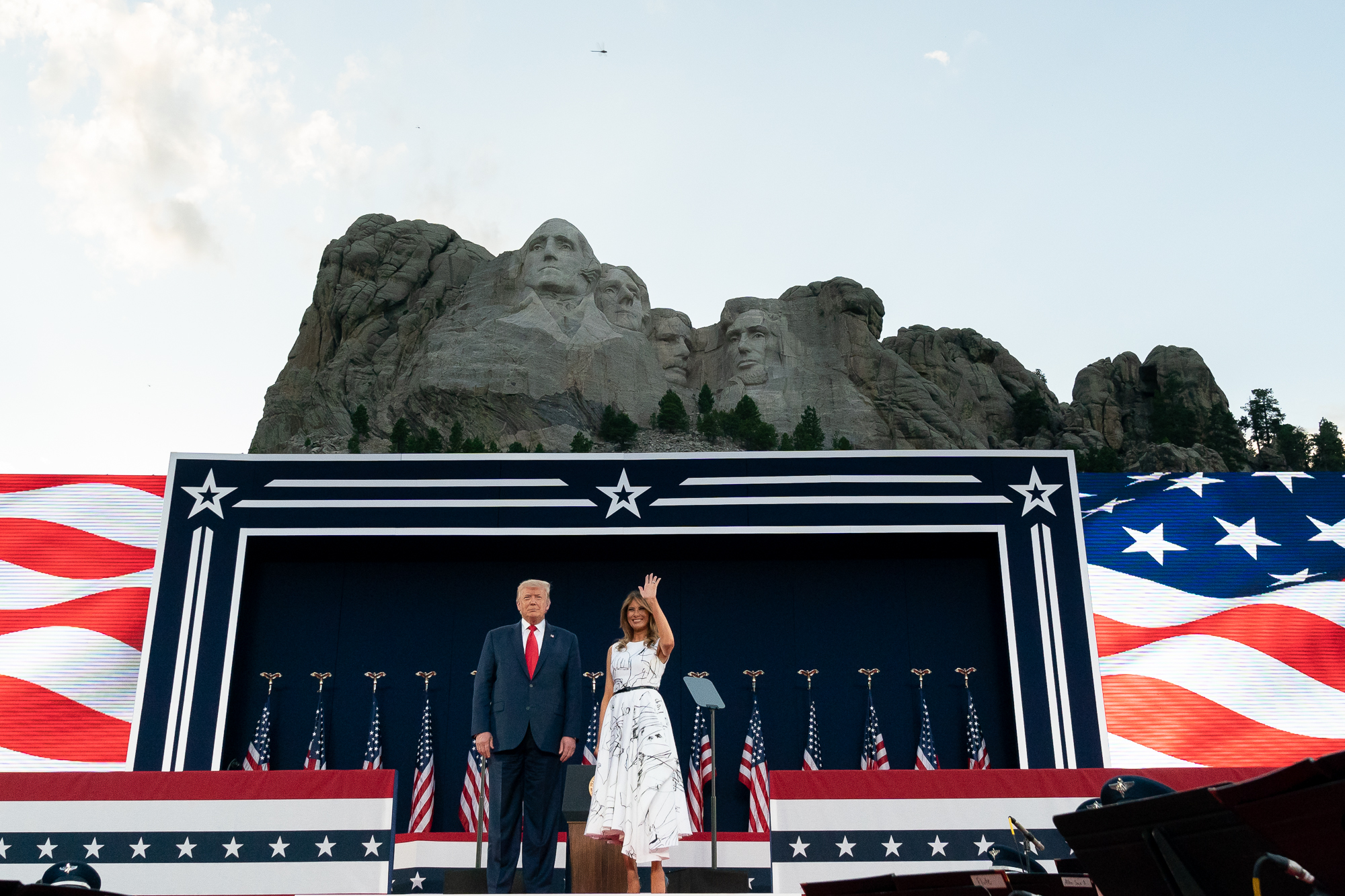In a speech delivered at the “White House Conference on American History” on Sep. 17., President Trump proposed to create a commission in order to promote “patriotic education.”
Trump later announced a commission that would be in charge of leading this push, dubbed the “1776 Commission,” saying that teachers should focus more on the “legacy of 1776,” the year in which the Declaration of Independence was issued and adopted by the Continental Congress, effectively severing the colonies ties from Great Britain.
Many have pointed out that this is in direct opposition to the “1619 Project,” an ongoing series by The New York Times Magazine, which aims to chart the history of America’s trajectory at the beginning of when African slaves were brought to America.
(The Pulitzer Prize winning project has had many detractors but its impact is undeniable. Source: YouTube/PBS NewsHour)
“The project aims to reframe American history placing the consequences of slavery and black Americans at the very center of the story we tell ourselves about who we are as a country,” said The New York Times, about the project’s original intent.
The project’s creator, New York Times reporter Nikole Hannah-Jones was awarded the 2020 Pulitzer Prize for Commentary.
Though concrete plans haven’t been laid for exactly what this new brand of education will look like, many have criticized the push for “patriotic education” as a sort of fudging of the reality of history.
“I can’t emphasis how much of a dumb idea that is,” said Jason Apgar, a History and U.S. Government teacher at Anthony Wayne High School, a high school in Northwest Ohio, which he has taught at for twenty years. “Understanding what Americans have screwed up on is not hating America. If anything they should respect our country for understanding the dark side of American history. Are we supposed to show pictures of happy Indians or happy black farmers in the 16-1700s and say what a great person Washington was and call it a day? Cause that’s not education. That’s quite honestly what fascist regimes do.”
During Trump’s speech he echoed a sentiment, which he touched on in front of Mount Rushmore on July 4th.
“Teaching this horrible doctrine to our children is a form of child abuse, the truest sense,” said Trump. “For many years now, the radicals have mistaken Americans’ silence for weakness. They’re wrong. There is no more powerful force than a parent’s love for their children. And patriotic moms and dads are going to demand that their children are no longer fed hateful lies about this country.”
“He makes it sound like it is some radicalized leftist conspiracy to radicalize into Antifa or something,” said Apgar. “It’s asinine.”
“If there is this grand conspiracy of indoctrination and anti-American ‘hate speech’ going on in schools, why did Trump win?” added Apgar. “I mean look at the election map, or better yet, the county map of 2016, it’s all red. If teachers are trying to indoctrinate kids they’re doing a bad job.”
(President Trump delivered a divisive speech for a 4th of July celebration in front of Mount Rushmore. Source: YouTube/USA Today)
The issue became even more divisive on the internet where the terms “Hitler Youth” and “Trump Youth” started trending on Twitter. Though arguably, the criticism is warranted, as the debate over monuments has reached a fever pitch in the wake of Black Lives Matter protests across the country.
Trump himself made a slight at his Democratic competitor, former Vice President Joe Biden, suggesting he would add a statue of Caesar Rodney, a slave owner who signed the Declaration of Independence to the National Garden of American Heroes Park, a move that would be an act of defiance in the face of a Rodney statue was removed from Wilmington, Del.
Though some worry about what an education that ignores America’s lesser moments and what it might do for the youth of America.
“The aftermath, in each generation after this will be disastrous,” said Apgar. “I mean, if you look at our standards, we are not required to teach anything about the genocide of Native Americans. I don’t have to teach about the Holocaust at all. Kids can graduate from twelve years of school and never learn anything about the Holocaust. And we’re already seeing the aftermath of that where the percent of people who believe the Holocaust didn’t exist is something like 25% now.”
Such “patriotic education” campaigns have existed in various countries, with varying and debatable results. Such a program was initiated by the Chinese government in the wake of the 1989 Tiananmen Square Incident, in which soldiers fired upon protesters killing as few as several hundred, possibly thousands.
(Back in 2017 Chinese President Xi Jinping warned Hong Kong that they might need ‘Patriotic Education’ if they intended to challenge mainland China. Source: YouTube/VOA News)
“The patriotic education campaign was well-engineered and appealed to nationalism in the name of patriotism to ensure loyalty in a population that was otherwise subject to many domestic discontents,” wrote Suisheng Zhao a professor of Chinese politics and foreign policy at the University of Denver in an article on the issue.
(What does Trump’s ‘1776 Commission’ and ‘patriotic education’ mean in a socially divided America? Source: YouTube/PBS NewsHour)
Richard Foltz
Associate Editor


